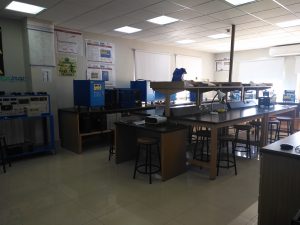Alternative Energy Technology laboratories
The following are the laboratories available to the Alternative Energy Technology program in meeting its educational objectives and outcomes:
Combustion lab (Supervisor: Eng. Motasem Seder)
This course elaborates on the fundamentals of internal combustion engines and what affects their performance, operation, fuel requirements and environmental impact.Internal combustion engines may be classified according to: cycle of operation (two-strokes & four strokes engine), cycle of combustion (Otto, Diesel & dual cycle engine), method of ignition (Spark ignition (S.L) engine & Compression ignition (C.I.) engine).This lab aims to study the engine operating characteristics (work, pressure, torque, power, air-fuel ratio, fuel consumption, efficiency, emission & volumetric efficiency) for various types of engines.
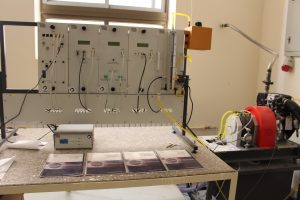
Hybrid lab (Supervisor: Eng. Motasem Seder)
This course covers the following topics: Introduction to Hybrid systems and describing the Renewable energy systems and technology, Solar panel characteristics, Wind turbine power curve, Fuel cell, Off-grid renewable energy system, Hydraulic turbo machine & different types of turbine that used for wind and hydropower system.
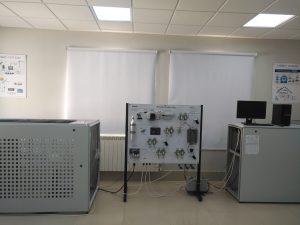
Solar thermal Lab (Supervisors: Eng.Jum’a Alsafartee)
The Solar Thermal Laboratory carries out both fundamental and applied research on technologies for converting solar energy into useful heat. Mainly demonstrate the principal concepts of solar thermal of water heating in a system consisting of a flat collector which transfer the collected heat via a closed circle and a pump to a heat exchanger inside a tank, It also studies the material coating and the angles at which the collector is installed with luminance of Solar radiation or Artificial light source.
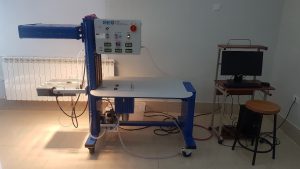
Wind energy Lab (Supervisor: Eng.Jum’a Alsafartee)
The Wind Energy Laboratory studies the wind as a form of renewable energy that can be used to turn a turbine to generate electricity, it’s also prepared to study and simulate the wind energy and transmute it into a generator, also the simulation of the connection to the electric grid, stand alone installation of the generator, the design of the wind turbine component and the control system of these generators.
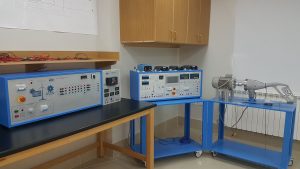
Simulation lab (Supervisor: Eng. Nour Atieh )
This course covers factors important in the understanding, design, simulation and characterization of PV systems and energy components of Buildings by using PVsyst & Transys software. The PVsyst software uses extensive knowledge of PV technology, meteorological irradiation resources and PV components. Trnsys is a complete and extensible software environment for the transient simulation of systems, including multi-zone buildings. It is used to solved the equations related to energy by dividing the buildings into split thermal zones and calculating all energy flow forms.
Photovoltaic lab (Supervisor: Eng. Nour Atieh )
This workshop course is to learn the principles of the following topics: solar PV technology (Photovoltaic effect, conversion of solar energy into electrical energy, behavior of solar cells), Measurement of solar radiation, Tracking surfaces, Solar radiation on tilted surfaces; Direct, sky diffuse and ground reflected components, solar angles, Sizing of On-Grid PV Systems, Sizing of Off-Grid PV Systems, understanding the physical Characteristics of PV cell, Cell Performance, Effect of amount & wavelength of light on a solar cell. Introduction to energy storage, battery reuse technology and Cycle Recovery Charger (CRC) &Features.
